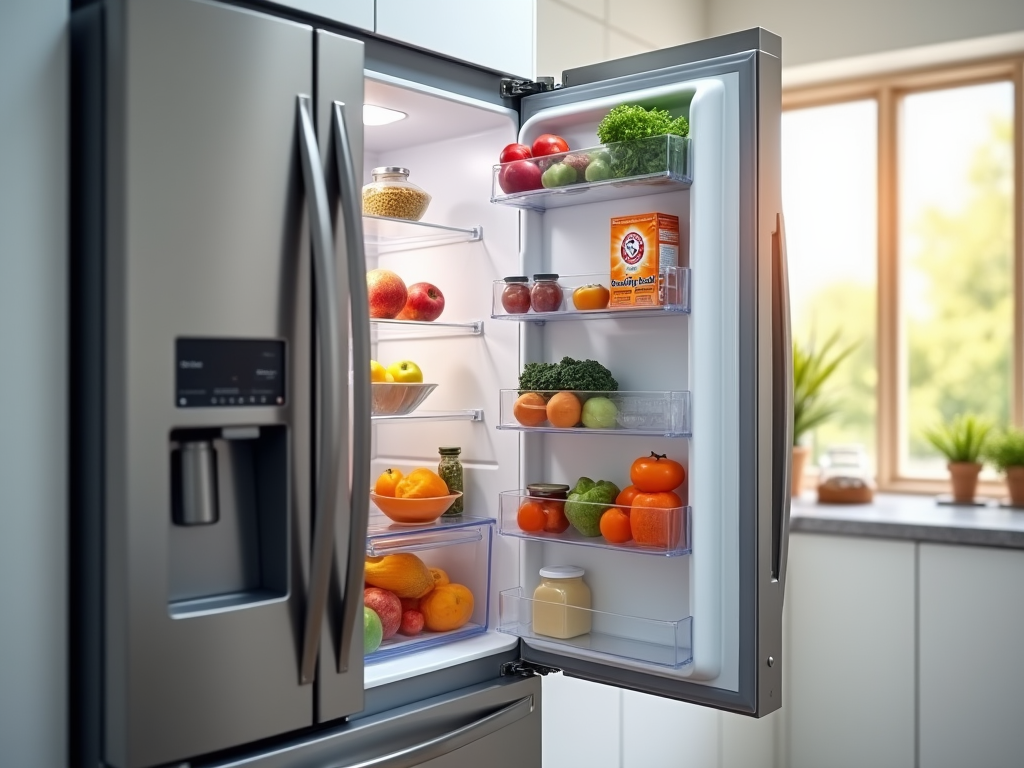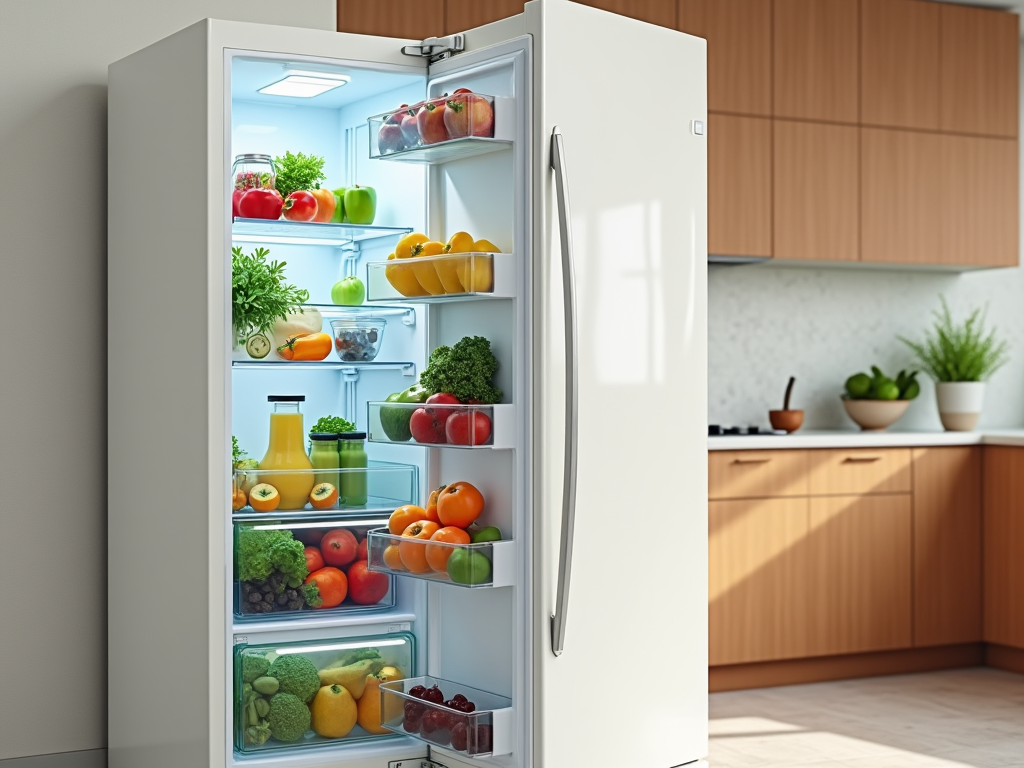Your refrigerator is a central hub in your kitchen, housing everything from fresh produce to leftovers. However, over time, it can become a repository for unpleasant odors, expired foods, and unsightly stains. Deep cleaning your fridge isn’t just about aesthetics; it plays a vital role in your overall kitchen hygiene. A pristine fridge not only makes cooking easier but also helps keep your food fresher for longer. By following a thorough cleaning regimen and incorporating smart organizational practices, you can create a healthier environment for your meals. Here’s what you need to know to transform your fridge into a beacon of freshness.
Why Deep Cleaning Your Fridge is Important

Maintaining a clean refrigerator is crucial for several reasons. First, it helps eliminate foul odors that can arise from spoiled food and spills. Second, a deep clean significantly reduces the risk of cross-contamination, which is important for food safety. A clean fridge also enables you to monitor your supplies better, reducing food waste caused by forgotten items that spoil. Finally, a refrigerator that is regularly cleaned can last much longer, saving you the hassle and expense of repairs or replacements. So, making time to deep clean your fridge is an investment in both health and savings.
Supplies You’ll Need for Deep Cleaning

Gathering the right supplies before you start your cleaning process will make everything more efficient. Here’s a list of essential items to have on hand:
- All-purpose cleaner or vinegar solution
- Baking soda
- Soft cloths or sponges
- Scrub brush
- Trash bags for disposing of expired items
- Optional: food storage containers for organization
Having these tools ready will set you up for success, ensuring you tackle every surface in your fridge effectively. Once you’ve collected your supplies, you’ll be ready to embark on a comprehensive cleaning journey.
Step-by-Step Guide to Deep Cleaning Your Fridge
Prepare for Cleaning
Start by emptying your fridge completely. This step will allow you to check expiration dates on everything and discard any spoiled food right away. Plus, it makes it easier to access all the surfaces that need scrubbing. As you remove each item, consider the organization process—perhaps categorize by type or even meal plan items for the week. Don’t forget to take out shelves and drawers that can be washed separately. This preparation phase is crucial for an effective cleaning session.
Clean the Interior
After the fridge is empty, focus on cleaning the interior surfaces thoroughly. Use a solution of water mixed with an all-purpose cleaner or a vinegar solution to wipe down all surfaces inside the fridge. For stubborn stains, sprinkle baking soda on the affected area, as it acts as a natural abrasive cleaner. Scrub gently with a soft cloth until the stains are lifted, and your fridge looks brand new. Ensuring every nook and cranny is addressed can help prevent build-up in the future. This attention to detail will go a long way in maintaining a clean fridge.
Rinse and Dry
After cleaning, it’s important to rinse all surfaces with clean water to eliminate any leftover cleaner residues. Residual cleaning products can affect the taste of stored food, so thorough rinsing is mandatory. Following this, dry all surfaces thoroughly using a soft cloth to avoid any moisture, which can lead to mold or mildew over time. Ensure that you pay special attention to seals and crevices. This final drying step rounds off your cleaning process perfectly.
How to Keep Your Fridge Odor-Free
Regular Maintenance Tips
To maintain a fresh-smelling fridge, consider these regular maintenance tips to keep unwanted odors away.
- Check Expiration Dates Weekly: Make it a habit to assess your food items regularly, removing anything that has gone bad.
- Use Baking Soda: An open box of baking soda placed on a shelf can absorb odors effectively.
- Keep it Cool: Set your refrigerator’s temperature below 40°F (4°C) to help prevent spoilage.
Additional Tips for Freshness
Maintaining freshness involves a few more strategies you can incorporate into your fridge routine.
- Consider placing fresh herbs inside, as they can add a delightful aroma.
- When spills occur, don’t wait for your next cleaning—they should be addressed immediately to prevent lingering smells.
- Organize items effectively so that older products are used before newer ones, reducing waste.
Cleaning Frequency
It’s essential to establish a cleaning frequency that works for you. Many household experts suggest a basic routine that includes:
| Duration | Task |
|---|---|
| Weekly | Quick wipe-down and check for expired food |
| Monthly | Remove all items and clean surfaces |
| Every 3 to 6 Months | Deep-clean and organize |
This table provides clarity on what tasks to perform and when, ensuring your fridge remains in top condition.
Conclusion
Deep cleaning your fridge not only aids in removing odors and promoting hygiene but also keeps your food fresher for longer. By implementing the steps and clever organizational tips discussed here, you can maintain a refrigerator that enhances your cooking experience and contributes to a healthier kitchen. With routine cleaning, you ensure the longevity of your appliance and the freshness of your food. Take the plunge today to transform your fridge and enjoy the benefits of a clean and organized space.
Frequently Asked Questions
- How often should I deep clean my fridge? It’s best to deep clean your fridge every 3 to 6 months, depending on usage.
- Can I use bleach to clean my fridge? While bleach can disinfect, it is not recommended as a cleaner for food storage areas. Opt for safer alternatives like vinegar or baking soda.
- Why is my fridge starting to smell? Common causes of fridge odors include expired food, spills, or a dirty drip pan. Regularly check and clean those areas to prevent bad smells.
- Is it necessary to remove all food when cleaning? Yes, completely emptying the fridge allows you to thoroughly clean all surfaces and effectively organize items.
- What should I do if my fridge still smells after cleaning? If odors persist, try placing fresh coffee grounds or a bowl of white vinegar inside the fridge to absorb the smell.



